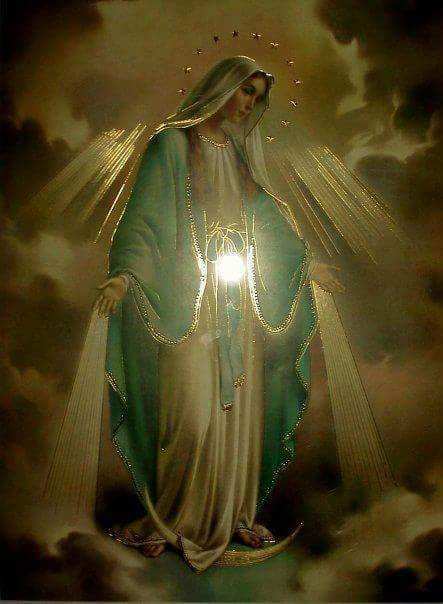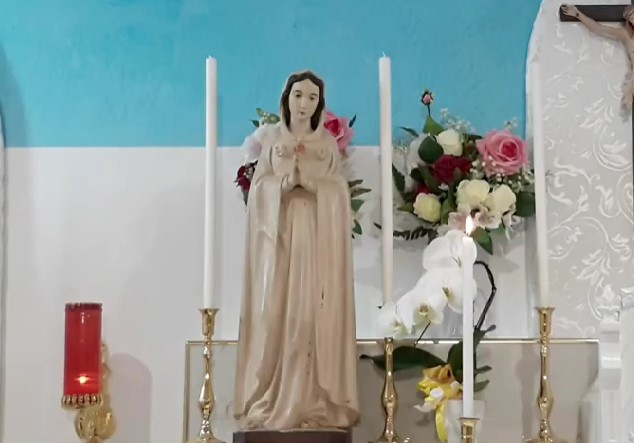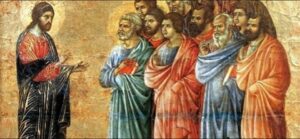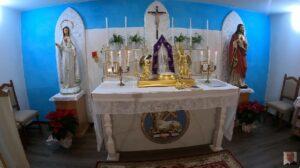

DALL’OMELIA DI DON ENRICO RONCAGLIA (*,1)
2 Tim 4:1-8
Carissimo: Ti scongiuro davanti a Dio e a Gesù Cristo, che ha da venire a giudicare i vivi ed i morti, per la sua venuta (parusia) e per il suo regno: predica la Parola, insisti a tempo opportuno e fuori tempo. Riprendi, esorta, sgrida con paziente insegnamento; perché verrà tempo in cui la gente non potrà sopportare la sana dottrina, ma per assecondare la propria passione e per prurito di novità, si creerà una folla di maestri, e per non ascoltare la verità andrà dietro a favole.
Matt 5:13-19
In quel tempo Gesù disse ai suoi discepoli: «Voi siete il sale della terra. E se il sale perde la sua virtù, come lo si riattiverà? Non è più buono che ad essere gettato via e calpestato dalla gente. Voi siete la luce del mondo. Non può rimanere nascosta una città posta sopra un monte. Né si accende la lucerna per riporla sotto il moggio, ma sul candeliere, perché faccia lume a quanti sono in casa.
Siamo entrati da ieri nel tempo dell’Ascensione. Il Signore e’ presso il Padre, ma e’ anche presente nell’Eucarestia.
Oggi ricordiamo San Beda detto il venerabile (2), monaco benedettino. Lo Spirito Santo lo aveva favorito di sapienza ed intelligenza, considerato un saggio nel suo tempo.
Metteva in pratica i suoi insegnamenti con umilta’ e modestia. Percio’ il nome venerabile.
Ma attenzione non veniva chiamato santo!
Questo nome (Santo) non puo’ essere, infatti, dato a un vivente! Avrebbe un effetto perverso (per solleticare l’orgoglio e la superbia umana, ma non la vera santita’ che e’ umile e mite).
Teniamo a mente questo insegnamento!
Sia lodato Gesu’ Cristo! Sempre sia lodato!
____________________
(*) Questo commento e’ scritto in tempo reale durante l’omelia. Mi scuso per l’eventuale misinterpretazione delle parole di Don Enrico.
(1) La Cappella dei Sacri Cuori e’ d’ora in avanti sotto la protezione della Madonna Pellegrina di Montichiari (Brescia, 1946).
(2) Beda il Venerabile (673 circa – 26 maggio 735) è stato un monaco cristiano e storico anglosassone, vissuto nel monastero benedettino di San Pietro e San Paolo a Wearmouth (oggi parte di Sunderland), in Inghilterra, e a Jarrow, in Northumberland; è sepolto nella Cattedrale di Durham. E’ un successore di San Patrizio (Maewyin Succat, Britannia romana, 385 – Saul, 17 marzo 461) il grande evangelizzatore dell’Irlanda e quindi erede del monachesimo irlandese. È famoso come studioso e autore di numerose opere, tra le quali la più conosciuta è la Historia ecclesiastica gentis Anglorum (Storia ecclesiastica del popolo degli Inglesi), che gli ha valso il titolo di “Padre della storia inglese”.
FROM THE HOMILY BY DON ENRICO RONCAGLIA (**,2)
2 Tim 4: 1-8 Dearest: I adjure you before God and Jesus Christ, who has to come to judge the living and the dead, for his coming (parousia) and for his kingdom: preach the Word, insist in due time and out of time. Reprimand, exhort, scold with patient teaching; because the time will come when people will not be able to bear sound doctrine, but to indulge their passion and out of itch for novelty, a crowd of teachers will be created, and in order not to listen to the truth they will go after fables.
Matt 5: 13-19 At that time Jesus said to his disciples: «You are the salt of the earth. And if the salt loses its virtue, how will it be reactivated? It is no better than to be thrown away and trampled on by people. You are the light of the world. A city placed on a mountain cannot remain hidden. Nor is the lamp lit to put it under the bushel, but on the candlestick, so that it may light up those in the house. We entered the time of Ascension yesterday. The Lord is with the Father, but he is also present in the Eucharist.
Today we remember San Beda known as the venerable (3), a Benedictine monk.
The Holy Spirit had favored him with wisdom and intelligence, considered a wise man in his time. He practiced his teachings with humility and modesty.
Therefore the venerable name. But beware he was not called a saint! This name (Holy) cannot, in fact, be given to a living person! It would have a perverse effect (to tickle human pride and arrogance, but not true holiness which is humble and meek).
Let’s keep this teaching in mind!
Praised be Jesus Christ. Always be praised!
___________________
(**) This comment is written in real time during the homily. I apologize for any misinterpretation of Don Enrico’s words
(2) The celebration Chapel of Sacred Hearts from now on is set under the protection of the Pilgrim Madonna of Montichiari (Brescia, Italy, 1946).
(3) Bede the Venerable (c. 673 – May 26, 735) was a Christian monk and Anglo-Saxon historian who lived in the Benedictine monastery of St Peter and St Paul in Wearmouth (now part of Sunderland), England, and at Jarrow, Northumberland ; is buried in Durham Cathedral. He is a successor of St. Patrick (Maewyin Succat, Roman Britain, 385 – Saul, 17 March 461), the great evangelizer of Ireland and therefore heir to Irish monasticism. He is famous as a scholar and author of numerous works, among which the best known is the Historia ecclesiastica gentis Anglorum (Ecclesiastical history of the people of the English), which earned him the title of “Father of English history”.

